COCONUTS HOT SPOT—When I ask Han Mei, owner of the Seven Suns tea shop, in Ekkamai, to tell me the best tea in the house, he refuses.
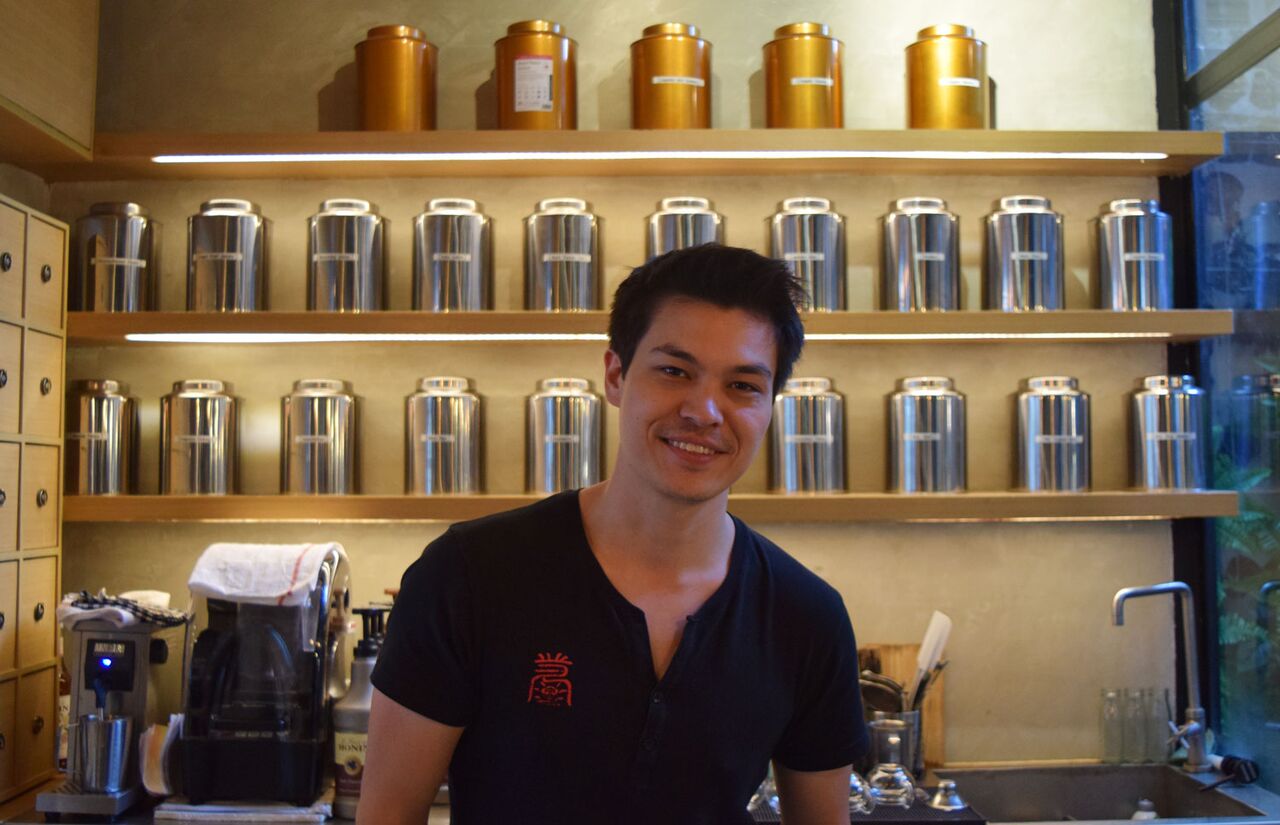
As it turns out, he has good reason. He said, “It really is down to personal preference. Are you looking for something light and floral, or dark and strong? We find out what you like first and make a recommendation based on that,” Mei explains.
On a mission to kickstart a tea revolution in Bangkok, Mei opened Seven Suns as a take-away tea bar in 2015 and expanded it earlier this year, creating a cool, light space where exquisite teas can be slowly savored. He imports his teas from Mei Leaf, a world-renowned retailer in London founded by his brother, Don.
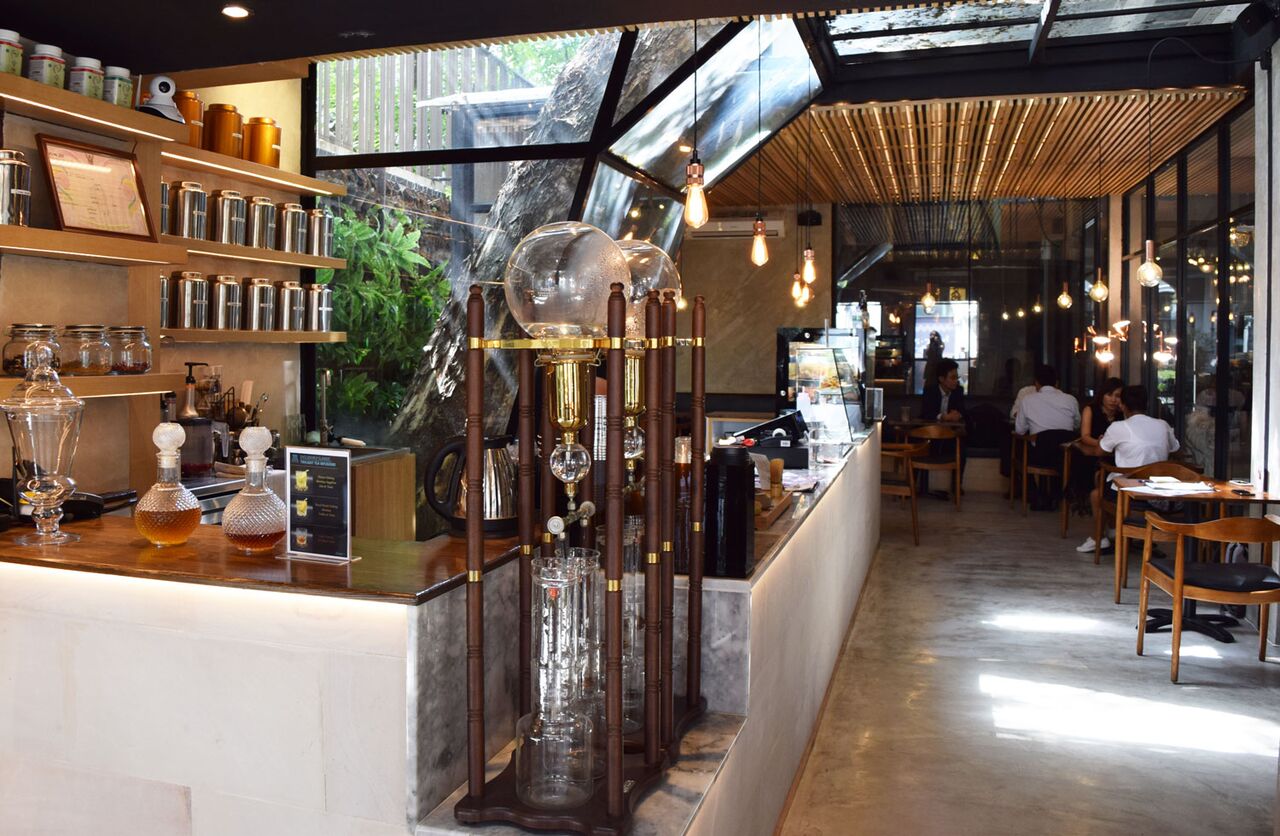
Mei discusses the nuanced traditions surrounding tea. He tells me tales of tea-picking monkeys, teas nibbled by insects to improve their flavor, teas that get you high, and the vast tea halls of China. “There’s just too much to talk about,” he says.
Given the health benefits and slow-living virtues related to tea culture, Mei thinks his tea shop could give Bangkok’s thriving coffeehouses a run for their money. He is looking to nurture a base of customers trying to find more zen in their day as an alternative to the frenetic caffeine spikes of coffee drinking.

“I’m trying to make tea discoverable and accessible. I want people to feel they can come here to work and sit, not like a formal tea house. People see how the tea is served in those places and they think, ‘Oh no, that big ceremony is too complicated’, but actually it’s just for show. I’m trying to cut out those barriers. All you need is tea and water.”
Most teas on the menu are THB220 but they are made for long drinking—you get a flask of hot water for topping up the leaves and will get at least three pots of tea out of it.
Part of the joy of the tea sampling is all the sniffing. I get a good sniff of the tea inside the tin, then another sniff of the teapot lid while Han is preparing it. My nose hasn’t been this happy in a while. I start with a Taiwanese Ruby Black tea (THB220).
It took 17 years of cross-breeding tea varieties to create Ruby Black and each leaf is handpicked and rolled, taking 72 hours per batch. Like all the teas here, it’s served to me Gongfu style. This consists of a miniature wooden tea table with a pot where my leaves are infusing, a jug for pouring out the tea once it’s infused (never leave your tea leaves soaking in water, according to Mei), a tiny cup and a “tea pet”—a water buffalo which changes color when I pour tea over it (I find this much more fun than I probably should). A personalized card provides me with tea-making instructions.

Ruby Black is a dark, rich, tangy tea. Mei points out that it will improve with the second infusion as the leaves have been dried and rolled tight. As they infuse, they uncurl and release more flavor. Sure enough, I pick up on more of the menthol and eucalyptus notes as we brew a second helping.
“I like to drink this in the evenings when I’m watching TV,” says Mei. I get it. Even though it’s dark, the herbal flavors are soothing.
Next up is the River High Oolong (THB220), a Chinese ginseng oolong. This tea is rolled much tighter than the Ruby Black. In fact, it looks a bit like gravel. But this belies a delicate, slightly honeyed flavor. The tea itself is much paler than the Ruby Black and doesn’t have the same tang. Instead the ginseng leaves a sweetness on the back of the tongue, like licorice. I watch in fascination as the tiny little balls of tea slowly unravel in the pot after each infusion, releasing more layers of flavor. It’s an energizing tea but there is no kick to it. It’s a gentle, sippable cup of delight.
We move onto Royal Peach Orchid (THB280), a Chinese Dan Cong oolong. This variety is known for imitating fruit flavours: “Like juicy fruit,” says Mei. This tea only has three to five infusions in it. After the first I’m not really picking up on the fruitiness of it.
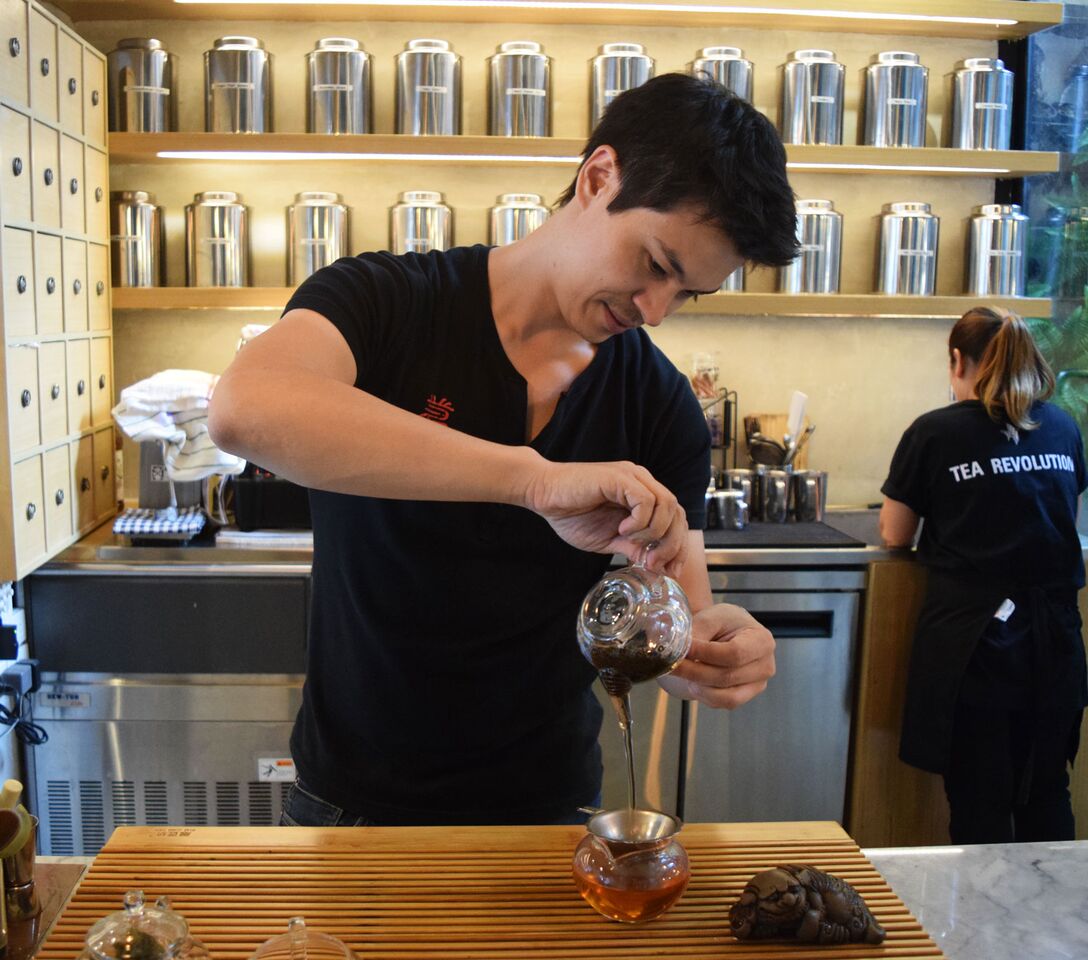
“Tea is like wine.” Mei tells me. “Try slurping it, to project the air to the nasal centers where you taste.”
I try this and it works. The peachiness comes through, clear as day.
We finish our session with a Pu’erh tea, a Mei Leaf brand called Monocle Boss (THB380). It turns out to be the most fascinating tea of the day. It’s not just the flavor, which Mei describes as, “Imagine it’s been raining in the forest and you just bury your face in the leaves,” but the whole industry around it. In China, they hold tea auctions where cakes of Pu’erh sell for up to USD1 million, and are then kept in specially humidified chambers ready to be sold to the next collector. It grows on 500-year-old trees in the Yunnan province of China where very slender and spritely 90-year-old men sip it all day. Han says drinking it over long periods like this makes you “quite tipsy” but he also credits it with reducing cholesterol and detoxifying the gut.
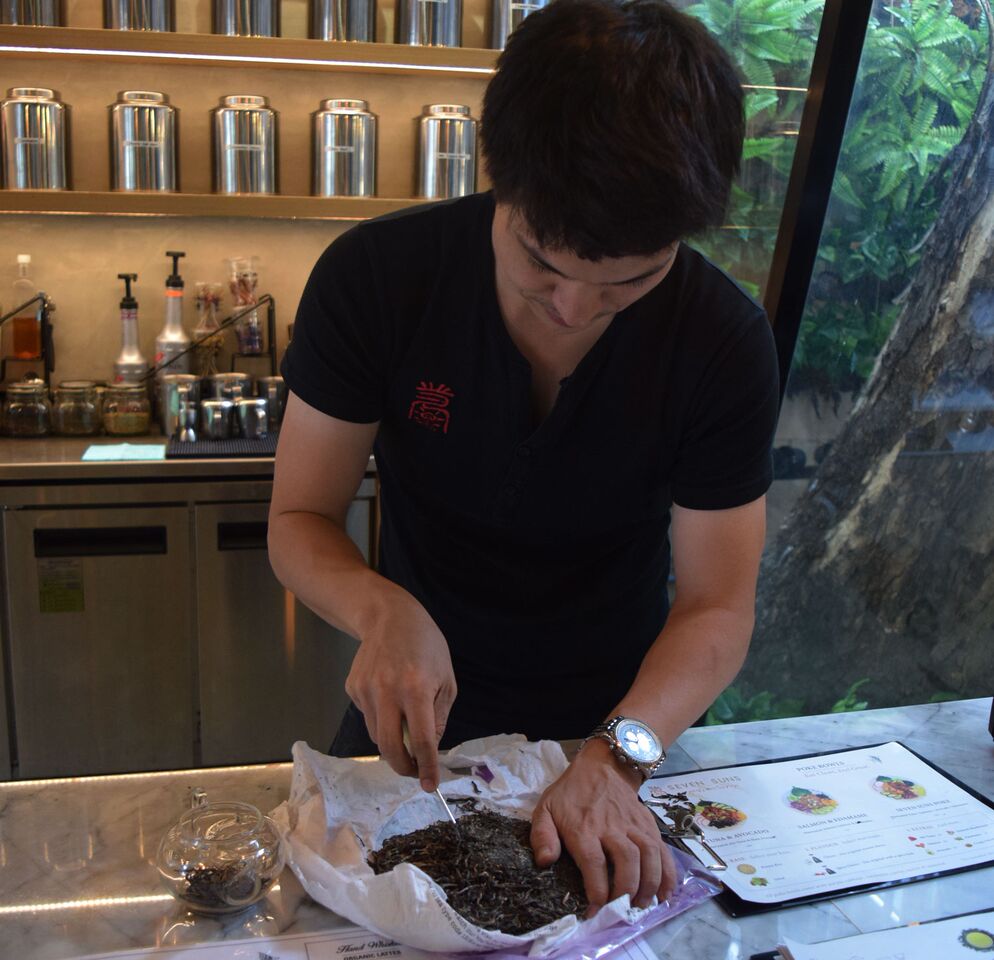
The flavor of the Pu’erh is earthy yet sweet, like freshly cut grass, and it takes on a satisfying smoky quality after a few infusions. I can definitely imagine sitting at my laptop sipping it for a few hours a day. I’ll be a skinny 90 year old in no time.
Seven Suns also offers poke salad bowls, matcha drinks, iced teas, and tea-infused cocktails.
FIND IT:
Seven Suns
Open daily, 10am-8pm
Sukhumvit Soi 61
BTS Ekkamai
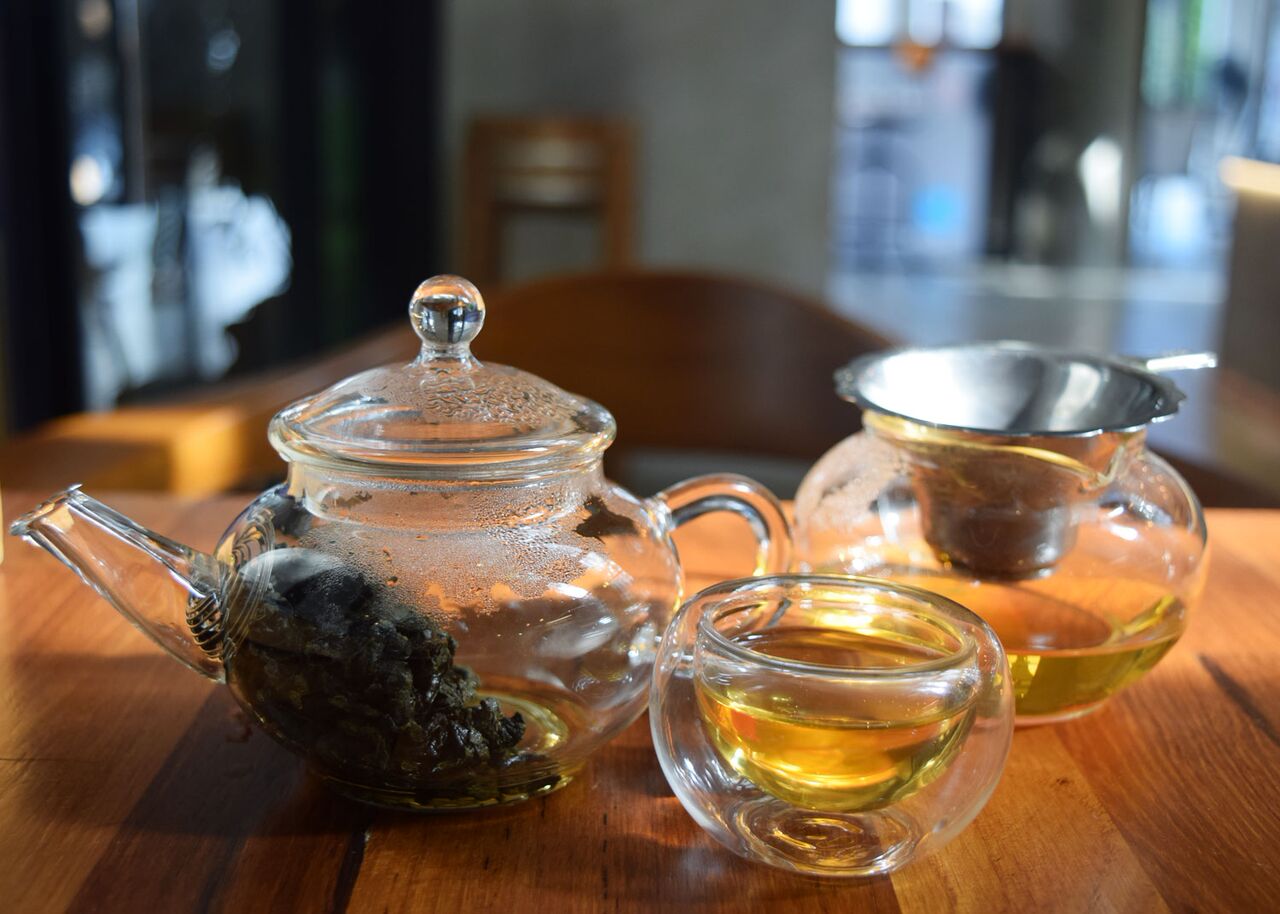




Reader Interactions